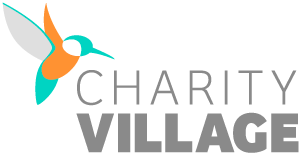It’s an extraordinary time in human history. We’re working for multi-national organizations, visiting space, communicating across oceans, and living longer than ever before. And it’s also the first time in history that there are four generations in the working world. This revelation comes with much less fanfare than anticipated, but it’s extraordinary nonetheless and warrants, at the very least, some consideration. For now, let’s cover the basics.
A generation, according to Dictionary.com, is defined as 1. all of the people born and living at about the same time, 2. the average period in which children grow up and have children of their own (about 30 years). Genealogists say it is a 15-year time span, arguing that at about 15 we leave childhood and about the age of 30 we start to participate in historical events. Generally speaking, a generation is defined by birth year(s) and shaped by life-defining events.
Using several sources, here are the generations defined.
Traditionalists
- Born 1922 – 1945
- 14 million people in North America
- Life events and life styles: World War II, Great Depression, nuclear families
- Lasting impacts: Creating suburbs, highways, structures of government & business and infrastructure for future generations to feel secure.
- Characteristics: Respect for authority, adhere to rules, work hard and play by the rules, dedicated and loyal, honest day’s work for an honest day’s pay.
- Relationship to work: Loyal to organization, climb the ladder, formal relationships with colleagues and superiors, defers to management, seniority and job titles are respected.
- Work stlyle: Focus on process and rules, get it done, follow the leader, dislike change, communicate face to face.
- Work ethic: Duty first, whatever it takes, leave a legacy.
Baby Boomers
- Born 1946 – 1964
- 85 million people in North America
- Divided into two groups: Those born in the 1940s and early 1950s as well as those born mid 2950s to early 1960s.
- Life events and life styles: Highest fertility rate in 200 years, greatest economic expansion in North American history, the Vietnam War, Woodstock, Kennedy era and assassination, space exploration, the Cold War, television.
- Lasting impacts: Sheer numbers expanded suburbia, birth of rock ‘n’ roll, civil rights movement, first wave/second wave feminism, lifted mandatory retirement, as they leave the labour market, folks with specialized skill-sets will be required to replace them.
- Characteristics: Child-focused upbringing, optimistic and positive, because of their size, they could influence traditional systems and bend them to accommodate their needs.
- Relationship to work: Collaborate and cooperate with peers, careers = personal value & worth, longer work weeks than generations before, believed success came through continual learning and growth, live to work.
- Work style: Prove themselves to their Traditionalist parents/supervisors, successes before all else, communicate via telephone.
- Work ethic: Count on me.
Generation X
- Born 1965 – 1980
- 53 million in North America
- Life events and life styles: More children born to single mothers than ever before, skyrocketing divorce rate, dual income families = Gen X as ‘latch-key kids’, economic wars of 1970s and 1980s, Watergate, second wave feminism, first personal computers.
- Lasting impacts: Entrepreneurial due to widespread job loss in the late 1980s and early 1990s, resisted labels, coined “work/life balance”.
- Characteristics: Labeled the “lost” generation as they didn’t attract attention of parents, media and/or government and the high unemployment rates and economic situation of that time, responsible for their own survival.
- Relationship to work: Work and social lives blend, works to live not lives to work, competence and skill valued over seniority.
- Work style: Seeks balance, unwilling to spend disproportionate amount of time at work, results-oriented, flexible and at ease with change, communicates via cell phone.
- Work ethic: Compromise.
Generation Y
- Born 1981 – 2000 (Millennials are a subgroup of Generation Y)
- 88 million in North America
- Life events and life styles: 9/11, Colombine shooting, war on terrorism, digital age.
- Lasting impacts: Most influential since the baby boomers, established relationships that go beyond professional, social and/or cultural lines, global citizens, create, seek and welcome constant change.
- Characteristics: Self-esteem building through parents, teachers & communities, more open-minded and tolerant of differences in age, race, religion, culture, sexual orientation, and socio-economic background, optimistic.
- Relationship to work: Loyal to team goals, trust in centralized authority, respect authority that demonstrates skills and competence, loyal to colleagues, work to contribute, career = opportunity to add value, casual relationships with superiors and colleagues.
- Work style: Use technology to find the quickest solution, challenge the rules, fluid work style, desire change, communicates via cell, text message, email, and instant messaging.
- Work ethic: Parallel careers, calls the shots.
As organizations grow and Gen Y comes up the ranks, espousing its own way of doing and being, remember this: each generation was built by the one before it. So, if I may be so bold, let’s learn from each other – old and young providing guidance and mentorship to each other. While age may be the parameter that defines a generation, it doesn’t have to dictate who is Teacher and who is Student.
Marie has worked in Employment Services for more than 8 years and is currently Facilitation Services Manager at Job Skills. She has also been an active volunteer for more than 20 years holding volunteer positions at Extend-A-Care, Best Buddies Canada, Durham Region Literacy Council, and Community Care Access Centre.











